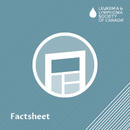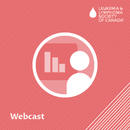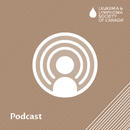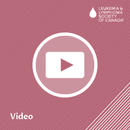Resource Library
Showing 1 to 10 of 320 results
Beyond active surveillance (the ‘watch and wait approach’) there are several CLL treatments to consider. Each treatment has different features and side effects. It is important to be comfortable with the CLL treatment you choose.
Cancer treatments can disrupt sleep. Find out how treatments can affect sleep and what strategies you can use to sleep better.
Immune effector cell-associated neurotoxicity syndrome (ICANS) is a side effect that can happen after some forms of immunotherapy treatment. It may cause you to experience serious neurological symptoms.
Dr. Vikas Gupta, Hematologist at the Princess Margaret Cancer Centre in Toronto, reviewed Myelofibrosis (MF) and the evolution in diagnosis, treatment options and aspects of follow-up care in this 1-hour webcast as part of MPN Conference 2025.
After being diagnosed with leukemia at 21 years old, Shae-Lynn Way shares her experience with shifting her mindset while preparing for a second stem cell transplant after her leukemia returned.
In this 1-hour live webcast, Dr. Sonia Cerquozzi, hematologist at the Tom Baker Cancer Center and Peter Lougheed Centre in Calgary, reviews PV, a type of MPN - its diagnosis, treatment options and aspects of follow-up care.
In this 1-hour webcast, Dr. Lynda Foltz, University of British Columbia, will review this type of myeloproliferative neoplasm (MPN): its diagnosis, treatment options, and aspects of follow-up care.) People with ET have too many platelets, a type of blood cell. Too many platelets can result in a blood clot (thrombosis) forming in a blood vessel.
Diffuse Large B-Cell Lymphoma (DLBCL) is the most common subtype of non-Hodgkin lymphoma (NHL). DLBCL is fast-growing (aggressive) but treatable. It most often appears in older adults but can appear at any age.
Cutaneous T-cell lymphoma (CTCL) is a slow-growing (indolent) subtype of non-Hodgkin lymphoma (NHL). CTCL is rare, representing 4% of NHL cases. It starts in white blood cells (lymphocytes) that reside in the skin, called T-cells.
Mantle cell lymphoma (MCL) is an aggressive subtype of non-Hodgkin lymphoma. It is a blood cancer of the B-lymphocytes (type of white blood cell that fights infections) found in the bone marrow. Learn more about MCL in this animated video.



